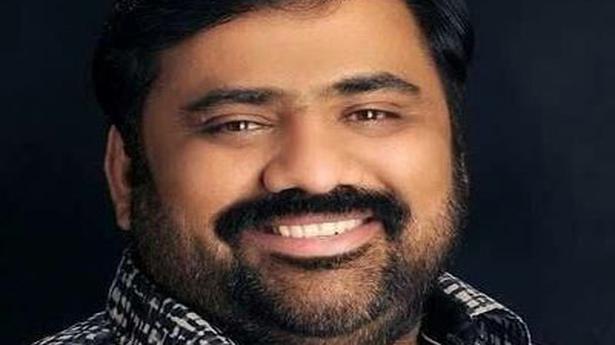
Rajya Sabha polls: Shiv Sena MLA Suhas Kande moves HC against ECI holding his vote invalid
The Hindu
Shiv Sena MLA Kande said the ECI’s decision discharging his vote has caused grave prejudice to his dignity and reputation
Shiv Sena MLA Suhas Kande on June 13 approached the Bombay High Court against the Election Commission of India’s (ECI) decision declaring his vote cast in the last week’s Rajya Sabha elections as invalid, after the BJP alleged that he violated the voting process.
Mr. Kande, in his petition filed through advocate Ajinkya Udane, said the ECI’s decision discharging his vote has caused grave prejudice to his dignity and reputation, and sought that the HC quash and set aside the ECI’s decision.
Mr. Udane mentioned Mr. Kande’s petition before a Division Bench of Justices S.V. Gangapurwala and Dhiraj Singh Thakur seeking urgent hearing. The court posted the plea for hearing on June 15.
Mr. Kande in his plea claimed that on June 10, when the Rajya Sabha elections were held for six seats in Maharashtra, he had gone to the electoral hall (at the Vidhan Bhawan in Mumbai), exercised his right to vote, made the necessary endorsement on the ballot paper and as per rules, came out and showed the ballot paper to Shiv Sena leader Sunil Prabhu, who had issued a whip for the polls.
“It is alleged by MLA Yogesh Sagar that the petitioner had shown his ballot paper to the whip of another political party. This is not true and the petitioner had shown his ballot paper to only Sunil Prabhu and not to any other political party,” the petition said.
Mr. Sagar ought to have raised this objection at that time and not after Mr. Kande left the electoral hall, the petition said.
It further claimed that the election officer in-charge of the poll station had given his ruling that the allegations made by Mr. Sagar were not factually correct and that Mr. Kande’s vote was valid.

“Writing, in general, is a very solitary process,” says Yauvanika Chopra, Associate Director at The New India Foundation (NIF), which, earlier this year, announced the 12th edition of its NIF Book Fellowships for research and scholarship about Indian history after Independence. While authors, in general, are built for it, it can still get very lonely, says Chopra, pointing out that the fellowship’s community support is as valuable as the monetary benefits it offers. “There is a solid community of NIF fellows, trustees, language experts, jury members, all of whom are incredibly competent,” she says. “They really help make authors feel supported from manuscript to publication, so you never feel like you’re struggling through isolation.”

Several principals of government and private schools in Delhi on Tuesday said the Directorate of Education (DoE) circular from a day earlier, directing schools to conduct classes in ‘hybrid’ mode, had caused confusion regarding day-to-day operations as they did not know how many students would return to school from Wednesday and how would teachers instruct in two modes — online and in person — at once. The DoE circular on Monday had also stated that the option to “exercise online mode of education, wherever available, shall vest with the students and their guardians”. Several schoolteachers also expressed confusion regarding the DoE order. A government schoolteacher said he was unsure of how to cope with the resumption of physical classes, given that the order directing government offices to ensure that 50% of the employees work from home is still in place. On Monday, the Commission for Air Quality Management in the National Capital Region and Adjoining Areas (CAQM) had, on the orders of the Supreme Court, directed schools in Delhi-NCR to shift classes to the hybrid mode, following which the DoE had issued the circular. The court had urged the Centre’s pollution watchdog to consider restarting physical classes due to many students missing out on the mid-day meals and lacking the necessary means to attend classes online. The CAQM had, on November 20, asked schools in Delhi-NCR to shift to the online mode of teaching.









